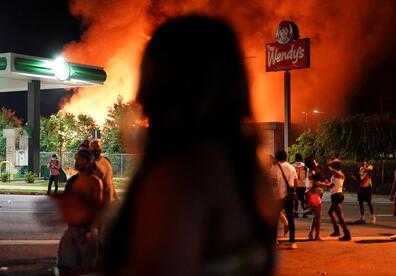
Many residents have been forbidden from mixing with those outside their families since early April under measures to contain infections that have passed 41,000 – one of Asia’s highest tallies.
Jerry, 22, and his girlfriend, who had been apart for weeks, were among the first customers queuing for bubble tea at a neighbourhood mall.
“We came early. We wanted to avoid the crowds,” said Jerry, adding that the couple planned to spend the day chilling out and catching up.
A nearby coffee shop serving kaya toast, or bread slathered with coconut jam and served with runny eggs, was full of masked patrons who had scanned QR (quick response) codes on their telephones before entering, to help with contact tracing.
Some restaurants – previously allowed only to offer takeaways and home deliveries – set up plastic screens between tables while yellow tape kept people apart in long queues outside shops.
Singapore won plaudits for its early containment efforts but after a surge in imported cases and outbreaks in cramped migrant dormitories it enforced one of the world’s strictest lockdowns.
A woman was fined S$5,000 ($3,587) this week for offences including meeting her boyfriend and not wearing a mask, local media reported.
But there was joy on Friday as friends nattered over tea at hawker centres, or food courts, and parents watched children play on swings and slides that were cordoned off for weeks.
The lockdown is being lifted in stages. In the first, at the start of June, schools resumed. Gyms, parks and beaches can now reopen but religious congregations, bars, theatres and large-scale events cannot yet.
